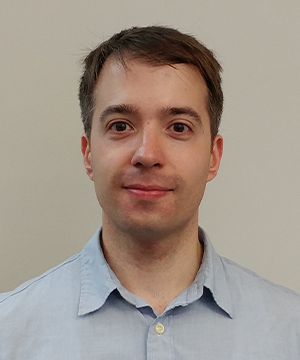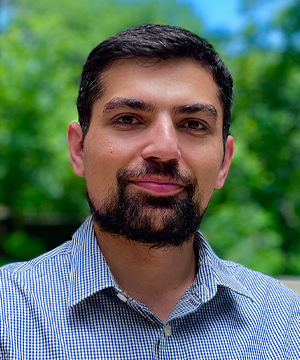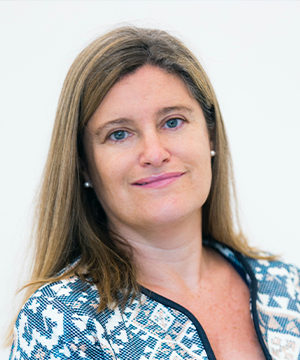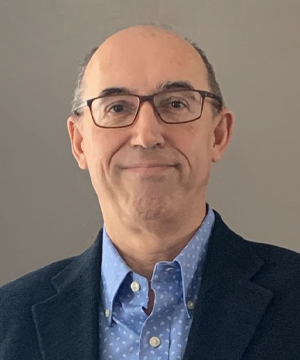New Faculty 2021-2022

Cantay Çaliskan
Assistant Professor of Instruction, Goergen Institute for Data Science
Cantay Çalışkan joins the faculty after serving as a visiting assistant professor of data analytics at Denison University. Before that, he was a visiting assistant professor of mathematics and computer science at Ohio Wesleyan University.
Çalışkan has taught introductory and advanced data science courses on machine learning, data visualization, and social and ethical aspects of data science. His research interests include computational social science, emotions in politics, social media, US Congress, networks of lobbying, and politics of renewable energy. He uses machine learning and deep learning, network analysis, and data mining to find patterns in social and political data sets. Most recently, he has been working on several projects involving the diffusion of information in social media and the quantification of emotions in politics.
His research has been published in Politics and Policy, Journal of Computational Social Science,and The Handbook of Global Companies and has been presented at various conferences and events held by the American and Midwest Political Science Associations, Political Networks, and Microsoft Research New England Machine Learning Day. He has received fellowships and scholarships from Swiss National Science Foundation, Boston University, Brandeis University, and Koç University.
- Undergraduate degree: BA, economics, mathematics, international and global studies, Brandeis University
- Graduate degrees: MA, international relations, Koç University; PhD, political science, Boston University
- Most recent appointment: visiting assistant professor at Denison University

Kaave Hosseini
Assistant Professor, Department of Computer Science
Kaave Hosseini has joined the Department of Computer Science as an assistant professor. Previously he was a postdoctoral associate in the Department of Mathematical Sciences at Carnegie Mellon University.
His research is in the area of theoretical computer science and usually deals with pseudorandom objects, that is, objects that are not random but behave as random in some respects. He has used such objects to better understand a variety of questions across different areas: Is randomness necessary to significantly speed up computation? Can data be stored in a way that when corrupted it can be detected and restored quickly? How can a computer perform a task on a stream of incoming data quickly and on the go? How can computational devices jointly perform a given task with minimized communication among them?
He has published several journal and conference papers and has been an invited speaker at a number of workshops in his field.
- Undergraduate degree: BS in computer science and BS in mathematics, Sharif University of Technology, Tehran
- Graduate degree: MS and PhD, computer science, University of California San Diego
- Most recent appointment: postdoctoral associate, Carnegie Mellon University

Susana Marcos
Nicholas George Professor of Optics, Professor of Ophthalmology; David R. Williams Director of the Center for Visual Science
Susana Marcos joins the faculty and the Center for Visual Science after serving as a professor at the Institute of Optics at the Spanish National Research Council (CSIC) in Madrid.
Marcos is an internationally recognized expert in the optics of the eye and the interactions of light with the retina. She conducts interdisciplinary research using concepts in physics, optics, and photonics to understand basic mechanisms in human vision, develop diagnostic instruments in ophthalmology, and invent new optical solutions to correct common vision problems, including myopia, presbyopia, or corneal disease.
She has made significant contributions to ocular speckle interferometry, wavefront sensing, adaptive optics, and quantitative anterior segment optical coherence tomography, with applications in laser refractive surgery and intraocular lenses, among many others.
Her research has been funded by the European Research Council, the European Commission, the Spanish Government and the Spanish National Research Council. She has authored or coauthored more than 185 peer-reviewed papers in top journals, and has 20 patents (14 licensed to industry).
She is a fellow member of the Optical Society of America, European Optical Society, and the Association for Research in Vision and Ophthalmology. Among her many awards are the OSA Adolph Lomb Medal, the International Commission for Optics ICO Prize, Alcon Research Award, the Cajal Medal of the Royal Society of Science, and the Jaime I Award on New Technologies and the National Research Award in Engineering (the last two presented by the King of Spain).
- Undergraduate degree: BS, physics, University of Salamanca
- Graduate degrees: MSc, applied physics, and PhD, visual optics, University of Salamanca
- Previous appointment: professor, Institute of Optics, Spanish National Research Council (CSIC)

Pablo Postigo
Professor, Institute of Optics
Pablo Postigo joins the faculty after serving as senior research scientist at the Institute for Micro and Nanotechnology at the Spanish National Research Council (CSIC) in Madrid.
His research is focused on the design, fabrication, and characterization of new nanophotonic devices that respond to current and future technological needs in optics and photonics. Nanophotonics is an emerging area of that studies the interactions between matter and light on the nanometric scale. It deals with the manufacturing of nanostructured materials, modified naturally or artificially, to explore their physical properties when they interact with light.
Postigo specializes in the manufacture of new nanomaterials (such as quantum dots) and new nanostructures (such as photonic crystals) for functional photonic devices with enhanced properties. Some examples are microlaser emitters with record efficiency, single-photon emitters for quantum photonics, solar cells with enhanced efficiency, nanowire optical biosensors or chips with integrated optofluidic nano-channels for optical biodetection, among others.
His research has been funded by the Spanish Ministry of Science and Innovation, the Air Force Overseas Research Program, and the European Commission, among others. He has authored or coauthored papers in peer-reviewed journals such as Nanomaterials, Optics Express, and Applied Physics Letters.
- Undergraduate degree: BS, physics, University of Basque Country, Spain
- Graduate degrees: MSc, solid state physics, University of Basque Country, Spain; PhD, physics/telecommunications engineering, Polytechnic University of Madrid.
- Most recent appointment: senior research scientist at the CSIC Institute for Micro and Nanotechnology, Madrid.
